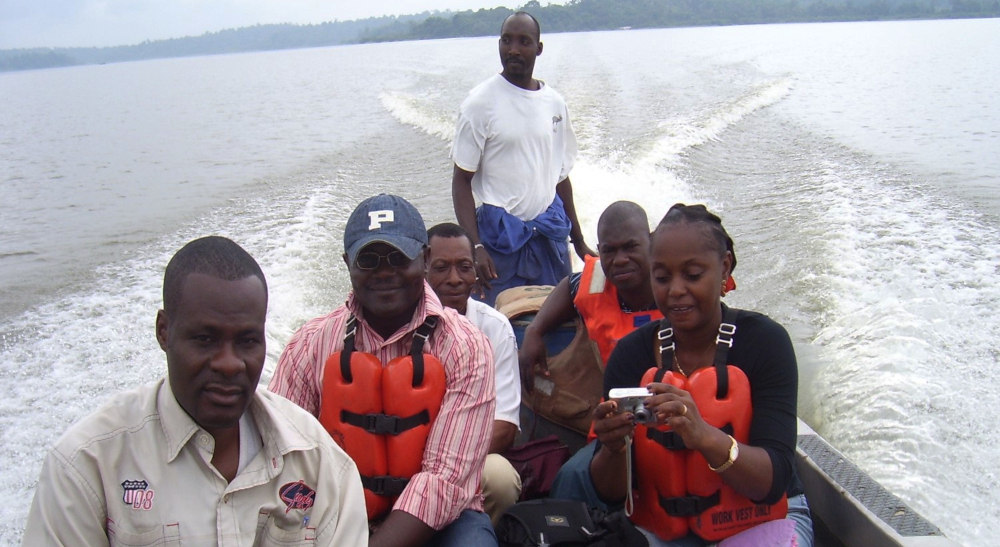Describe your organisation, its vision and mission
The vision of the Watershed Task Group (WTG) is to create a sustainable future for local communities through protecting and transforming ecosystem values and services for development by 2050. Our mission is conservation of biodiversity and sustainable management of natural resources in Cameroon and Africa.
How long have you been a GWP Partner?
WTG joined GWP as a partner in 2007 because the original mission was watershed development and protection in the western highlands from 1997 till 2004. When the programme in the conservation of coastal wetland was approved by IUCN NL in 2005, there was a challenge to apply what we now call the catchment wide approach (managing from the highlands to the ocean) in natural resources management. With the concept of Integrated Water Resources Management (IWRM), or the basin approach, which is promoted by GWP, we quickly saw GWP as a strategic partner and frankly speaking they have pushed us to go places and do interesting things.
What are the benefits of being a GWP partner?
WTG has been branded a reference in the water sector in Africa by organisations like the UNDP Global Environment Facility with at least two best practices. WTG was recommended by the Cameroon government through GWP Cameroon to participate in the development of the master plan for IWRM in the Congo basin which involves six countries (Gabon, Cameroon, Congo Brazzaville, Congo Kinshasa, Central African Republic and Angola) and the strategic plan for the promotion of interior navigation in the Congo basin (2013-2018). WTG was also recommended to participate in the re-engineering of the national action plans for IWRM for eight countries of the Niger Basin (2007). WTG was an active participant in the development of the Cameroon action plan for IWRM through GWP.
Please share a challenge facing the management of water resources in your area of expertise.
I will cite a huge pan-African programme for which WTG is an accredited African Union partner. I am referring to the Great Green Wall Initiative for the Sahara and Sahel (GGWISS), which covers about 36 African countries. The original concept was focused on “greening” or planting trees to restore degraded lands. The aspects of water management in the context of the catchment wide approach were left out and this has made the programme very unsustainable. If both the “greening” and “bluing” concepts are integrated, then the programme becomes more sustainable. GWP Cameroon should start reflecting on how to integrate the water aspect to the Cameroon GGWISS strategic and action plan which has already been validated.
Are there any special projects or initiatives that you would like more widely known?
One project is managing invasive species (water hyacinth and salvina) with partners through mechanical and biological control mechanisms and valorisation into bio-fertilizers and energy (household cooking heating and electricity) in the Sanaga Basin, Nyong Basin and Wouri Basin (like MINEPDED, MINFOF, local councils, AMMCO, Douala Ports Authorities, KfW, Camwater, Addax Petroleum Cameroon and Perenco).
The finances from IUCN NL and GEF UNDP Small Grants projects (2006-2012) helped WTG and GWP Cameroon in the production of a case study for the IWRM ToolBox in the Lake Ossa complex.
Top photo: The coordinator of WTG, Mr. Chi Napoleon Forpah and the GEF team headed by Dr. Mpeck Marie Laure of GEF Small Grants National Coordinator on a field evaluation mission in Lake Ossa 2008.

